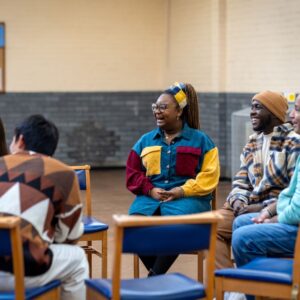Mentoring pastors and Christian leaders is a bit different than mentoring in other professional contexts.
While ministry does require competence in many skills, it is perhaps even more about becoming a certain kind of person.
Mentors for pastors need a dual focus of developing the ministry skills and the ministry character of their mentee. That kind of mentorship requires a real relationship with your mentee–not just an imparting of knowledge or a handing off of tasks, but a vulnerable partnership.
Wise Mentors do these things:
Share ministry.
When you invite mentees to do ministry beside you, they learn through watching what you do and how you do it.
Debrief learning experiences.
After doing shared ministry, explain why you did what you did. Invite their questions as you share your internal process of decision making.
Give stretch assignments.
A stretch assignment is an opportunity to do something new that is beyond what a person already knows how to do, but not so far beyond that it sets them up for immense failure. This just-right level of challenge is what learning experts call the proximal zone of learning.
Give feedback with appreciative inquiry.
Mentees need your insight into how they are doing and how they can grow, but how you give that feedback can determine how it is received. Appreciative inquiry is a process of asking questions about what is working and how to build on that. Yes, you may have to occasionally give more direct correction to your mentee, but always give them a chance to reflect first by talking through questions; they may be aware (and embarrassed) of the shortcomings and errors you would point out.
Move through the stages of mentoring.
Mentees need to be equipped with knowledge and guidance, but you should be moving them toward collaboration and collegiality with you. (See Gray’s Mentoring Model.) Offer their own failures, past and present, for the mentees’ vicarious learning and for building trust and hope. Mentees need to see attainable models of ministry, and sharing your failures will help them know how to stay in ministry as the fully human (and therefore imperfect) yet beloved people they are.
Develop—don’t use—their mentees.
Seeing mentees as free labor to do the tasks that you don’t want to do, even if they are interns, undermines the long term future of the church. Attend to their gifts, skills, and passions, and help them learn how to connect those to the realities of ministry. Consider the skills and character you want your future leader — the pastor who serves you after you’re retired — to have, and give responsibilities and experiences that develop those.
Advocate for the mentee
Advocate within and beyond their organization. This could look like resisting the urge to share every congregant’s critique of an intern, helping them network in the broader leadership community, and advocating for their credentialing in advance of when they need it.
Model good boundaries. Take care of yourself and give the mentee explicit permission to do the same. Disconnect from work for at least an hour each day, and take a sabbath regularly, and share with your mentee about how to maintain those boundaries.
Initiate regular check-ins.
Mentees may assume that you are too busy to meet with them. From the beginning of the relationship, set up a schedule for when you will meet and prioritize those check-ins as an investment in the development of the leader. A check-in can be simple in format to yield great results: What is going well? What is challenging you? What support, resources, or roadblock-removal do you need from me? Consider more frequent “walk bys”–a quick but intentional conversation where you encourage, invite questions, and ask how you can resource.
Have a real relationship with the mentee.
That may include spending time with them in their interests, in home-spaces, and with their close friends and family. Having fun together never hurts either!
Impact the relational style of the mentee.
Leadership happens through relationships, and all leaders have ways of relating that are more and less effective. Mentors can use questions and reflect back what they see to get to the heart of how and why their mentee reacts to different people in different situations. This deeper self-awareness gives the mentee the freedom to choose healthier ways of relating and increases their emotional intelligence.
Refer their mentee to other resources
Resources can include counselors, spiritual directors, and professional development training, when needed.
Looking for additional leadership help?
Too many people dive into world-changing work, only to become discouraged, disillusioned, and burnt out. Strengthening individuals is the first step towards building strong organizations and flourishing communities. Find out more about The Center’s individual programs here.
___________________________________________________________________________________
This resource is also available as a pdf download:
Download: Becoming a Wise Mentor for Christian Leaders

This work is licensed under a Creative Commons Attribution-NonCommercial-ShareAlike 4.0 International License.











0 Comments